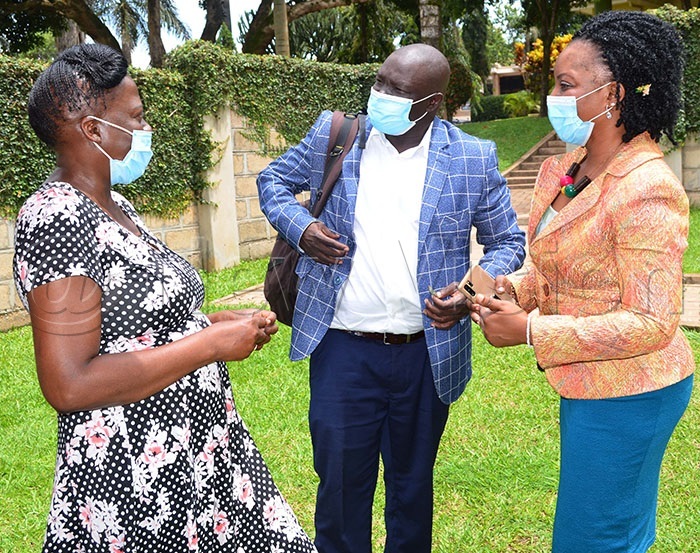Global Fund hails Uganda for HIV/AID, TB, and malaria fight
The success was attributed to the continuous distribution of mosquito nets, case management, and indoor residual spraying.
HEALTH|TB|HIV/AIDS
The Geneva-based Global Fund has hailed Uganda's fight against Malaria, Tuberculosis, and HIV/AIDS.
In 2018, Global Fund released $400m to Uganda to fight the three epidemics in the financial year 2018/2021.
The representative of Global Fund Country Coordinating Mechanism (CCM), Prof. David Kitara Lagoro, said there has been a lot of success in the fight against TB, Malaria, and HIV/AIDS in the country.
"This can be shown by the rating that has been given by the Global Fund Board," Lagoro noted.
He cited the reduction in Malaria prevalence.
According to the 2018/19 Malaria indicator survey, the disease prevalence rate dropped to 9% from 19%.
The success was attributed to the continuous distribution of mosquito nets, case management, and indoor residual spraying.
Prof. Lagoro said the country has also achieved the global targets of HIV/AIDS.
Uganda was one of the ten countries globally to achieve the second 90 and third 90 targets. The UNAIDS report released this year indicated that 14 countries including Uganda had achieved 83% target at the end of 2019.
According to the targets; 90% of all people living with HIV should know their HIV status, 90% of all people with diagnosed HIV infection should receive sustained antiretroviral therapy and 90% of all people receiving ART should have the viral suppression of their virus by 2020.
In Uganda, adolescent girls and young women accounted for 27% of HIV infections in 2019, more than double their 10% share of the population.

Women and girls of all ages accounted for 57% of new HIV infections in Uganda in 2019.
Speaking during the National constituency engagement meeting for the Research, Academia, Science, and Professional Associations Self-Coordinating Entity (RASP -SCE) Constituency at Esella Country Hotel-Kira, Lagoro said the TB case identification process has been done and the treatment rate has gone up, a clear indication that the country was on the right path.
RASP- SCE constituency started in 2005 to contribute to the National Response to HIV, AIDS, Malaria, and TB through coordinating research, academic and scientific professional work and output.
The RASP-SCE National Constituency Engagement meeting was to strengthen capacities to undertake and coordinate priority HIV and AIDS-related research and effectively utilize the outcomes.
The meeting intended to provide an opportunity for the RASP SCE to give feedback on their activities and plans, receive feedback from the constituencies on implementation of current Global Fund Grants, make consultations with the various constituencies on Key gaps and priority needs in response to the three disease components for inclusion in the next Grant Funding Application to the Global Fund.
At the same meeting, Lagoro was re-elected Substantive Chair for the Academia constituency while Dr Cissy Kityo was elected the Alternate Chair for the same to the Uganda Country Coordinating Mechanism (UCCM).
Dr Kityo said, "As representatives of Academia to Global Fund Coordination, we will ensure that relevant research that addresses the care and practice is brought to the forefront, to make a difference with Global Fund monies that come to the country."
They promised to improve the way things are done in care, and also focus on relevant research in areas of HIV and TB.
Lagoro is optimistic that they will serve the country in a much better way, to ensure the Fund benefits the last person.